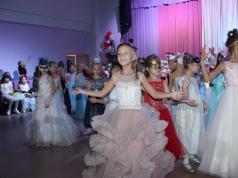It is difficult to imagine the Russian language without cases. They are the ones who help us speak, write and read correctly. Total in Russian modern language There are six cases, each case has its own question and its own ending. To make it more clear, we will look at each case separately, and also analyze what questions the cases answer.
Cases in Russian
- Nominative - answers the questions “who?”, “what?”. Example: dog, book;
- Genitive – answers the questions “who?”, “what?”. Example: dog, book;
- Dative - answers the questions “to whom?”, “what?”. Example: dog, book;
- Accusative - answers the questions “who?”, “what?”. Example: dog, book;
- Creative - answers the questions “by whom?”, “with what?” Example: dog, book;
- Prepositional - answers the questions “about whom?”, “about what?”. Example: about a dog, about a book.
The nominative case is singular case in Russian, the question of which is answered by the subject. The genitive case determines affiliation, kinship and some other relationships. Dative determines the exact end point of the action, the recipient of the message. The accusative case denotes the direct object of the action. Creative defines an instrument, some types of temporary accessory. The prepositional one can be presented in the form of a question: “Are you thinking about who, what?”
Now you know what questions the cases answer.
- (grams) in Indo-European languages formed by several suffixes. I. Suffixes os es s (three varieties of the same suffix, with different degrees of vocalization) form the R. singular case from stems to a consonant sound and to all... ... encyclopedic Dictionary F. Brockhaus and I.A. Efron
Genitive- ● The genitive of a date indicates the date of an event. This happened on the first of March. The meeting will open on May 10th. The kind landowner congratulated Ivan Petrovich on the birth of his son, who was born in the village of Pokrovskoye on August 20, 1807...… … Control Dictionary
Case form combined with a verb, name (noun, adjective, numeral), adverb (in the form comparative degree) and expressing the meaning of an object, accessory, quantity, etc. Genitive date indicates the date of any ... Dictionary linguistic terms
See genitivo... Five-language dictionary of linguistic terms
Genitive- Genitive … Russian spelling dictionary
Genitive- The form of the word used in the text of speech construction as one of the stylistic means. It is believed that use in creative works students chain words in genitive case, - This speech error. But meanwhile in scientific speech use... ... Dictionary of linguistic terms T.V. Foal
Genitive- linguistic Indirect case form expressing the meaning of an object, accessory, quantity; answers the questions: who? what? ... Dictionary of many expressions
Ch case answering the question of whom? Dictionary Ozhegova. S.I. Ozhegov, N.Yu. Shvedova. 1949 1992 … Ozhegov's Explanatory Dictionary
genitive case of qualitative assessment- units In morphological stylistics: a type of genitive attributive that characterizes the features or properties of an object. A man of great intelligence kind heart, cheerful disposition, tall, strong build... Educational dictionary of stylistic terms
GENERAL, genitive, genitive. Only in the expression: genitive case (gram.) answering the question: whom what? or in other cases (eg adj.) a case depending on the word in this case. Ushakov's explanatory dictionary. D.N. Ushakov. 1935 1940 ... Ushakov's Explanatory Dictionary
Books
- Genitive case, Mila Ivantsova. In maternity hospitals, yesterday's strangers often share their most intimate things, confident that they will never meet again. However, the fates of young Kiev women turned out to be closely connected: Katya, Ira and Natasha...
- Genitive case in Russian: forms and use. Comparative analysis of the functions of the genitive case in English and Russian languages. - 2nd mzd. , Ryan N.. The manual, aimed at university students, gives a complete understanding of the Russian genitive case. The book consists of three parts. The first and second chapters describe the grammar of the genitive...
As stated in many sources, we need cases to correctly formulate sentences, so that people can understand each other and can correctly and competently express their desires. In the Russian language there are such names of cases: prepositional, instrumental, nominative, dative and accusative. Oh yes, also genitive. This is what will be discussed further. Genitive is indirect case. It expresses a kind of relation of belonging. Almost any part of speech has a case, but case is assigned to the noun.
Questions of the genitive case.
The genitive case answers the questions “who?”, “what?”. In addition to these questions, the word “no” is added. “(No) Who? What?". For example, let’s take the word “shirt”, in the genitive case it will look like “shirt” And ».
Endings and examples of words in the genitive case.
The word that answers the questions “Who?”, “What” will be in the genitive case and at the same time have endings in singular first declension - “y”, “and” (no rats s ); in the singular of the second declension - “a”, “ya” (no shore A ), and in the third declension – “and” (no dirty And ). In the plural, words declined into the genitive case will have endings: in the first declension the ending of the word will be zero, in the second - “ov” (doctor ov ), and in the third declension “ev”, “ey” (maz to her ). Most often, the genitive case occurs in conjunction with the prepositions: “from”, “with”, “from”. I would also like to note that the genitive case performs a number of functions:
- dividing - “part of on With";
- possessive - "alley" district »;
- negative - “to leave Houses ».
Parts of speech are studied in primary school. Some of them are combined into special groups according to special characteristics. Pronouns, numerals, nouns and adjectives are included in the group of inflected parts of speech, that is, those that change according to numbers and cases. You need to understand what declension is in order to correctly write the endings of the forms of one word that changes according to cases.
How to determine the case of a noun - learning to determine the declension
The Russian language divides all nouns into 3 declensions:
- Type 1 – words m.r. and zh.r. ending in -a or -ya. For example, rainbow, road, snake, track.
- Type 2 – words m.r. and s.r., ending in -о or -е or having null ending. For example, education, house, oatmeal.
- Type 3 – w.r. words ending in soft sign. They have a zero ending. For example, doe, tribute, spruce, night.
Words of the same type of declension have identical endings when changing by case. Therefore, when you have doubts about spelling case endings, you need to look at the change rules for the entire declension group to which the word belongs.
How to determine the case of a noun - features of cases
- We ask the question to the noun from those members of the sentence with which it is connected.
- Nominative case – questions Who? What? For example, healer, forest. You can use an additional word: ( There is) Who? – medicine man, (there) what? - forest.
- For questions whom? what? the genitive case answers with an additional word No. For example, ( no) who? - healer, (no) what? - forests.
- Dative. Questions are asked about the noun to whom? what? with an additional word give. For example, (give) to whom? - to the healer, (give) what? – forest.
- Accusative. Using questions whom? What? with an additional word I see. For example, ( I see) who? - healer, (I see) what? - forest.
- Instrumental. Asking questions by whom? how?. You can use an additional word admire. For example, ( admire) who? - healer, (admire) what? - forest.
- The last, Prepositional case, answers questions about whom? about what? using the word think. For example, think about whom? - healer, what to think about? - forest.


How to determine the case of a noun - how to distinguish the Nominative case from the Accusative case
Some forms of the Nominative and Accusative cases are sometimes the same because they answer the same question What?
Let's consider the proposals:
- The snow was falling in large flakes.
- When we went outside, we saw snow.
Word snow answers the question What? in both sentences, has the same form, but different syntactic meaning.
In the first case, snow is the subject, in the second it is the circumstance. That is snow performs the action in the first sentence, and in the second the action is performed on it.
Noun snow in 1 sentence is in Nominative case, in 2 – in Accusative.


We looked at the questions and auxiliary words of each case. We considered the case of coincidence of word forms of the Nominative and Accusative cases. We looked at how the syntactic role helps determine case in case of difficulties.
Case is a form of formation and function of a word, endowing words with certain syntactic roles in a sentence, a connecting link between the individual parts of speech of the sentence. Another definition of case is the declension of words, parts of speech, characterized by a change in their endings.
Perfect mastery of the ability to inflect different parts of speech according to cases is distinctive feature a literate, educated person. Often school program, which explains in detail the cases of the Russian language, is forgotten after a few years, which leads to gross errors in drawing up the correct structure of the sentence, causing the members of the sentence to become inconsistent with each other.
An example of an incorrect declension of a word
To understand what we're talking about, it is necessary to consider an example showing the incorrect use of the case form of the word.
- The apples were so beautiful that I wanted to eat them right away. Their shiny red skin hid the juicy flesh, promising a truly amazing taste pleasure.
There is an error in the second sentence, indicating that the cases of nouns in the Russian language have been safely forgotten, so the word “vkusa” has the wrong declension.
The correct option would be to write the sentence as follows:
- Their shiny red skin hid the juicy flesh, promising a truly amazing pleasure of (what?) taste.
There are so many cases in the Russian language, so many forms of changing the endings of words that define correct usage not only the case form, but also the number and gender.
I wonder what percentage of adults not involved in writing, editorial, educational or scientific activity, remember how many cases there are in the Russian language?
Disappointing results Total dictation, conducted this year, leave much to be desired, showing an insufficient level of literacy for the majority of the population. Only 2% of all participants wrote it without a single mistake, receiving a well-deserved “A”.
The largest number of errors were identified in the placement of punctuation marks, and not in the correct spelling of words, which makes the results not so disastrous. With the correct spelling of words people special problems don't experience it.
And for the correct declension of them in a sentence, it is worth remembering the names of the cases, as well as what questions the word answers in each specific case form. By the way, the number of cases in the Russian language is six.
Brief description of cases
The nominative case most often characterizes the subject or other main parts of a sentence. It is the only one that is always used without preposition.
The genitive case characterizes belonging or kinship, sometimes other relationships.
The dative case defines a point symbolizing the end of an action.
The accusative case is a designation of the direct object of the action.
The instrumental case denotes the instrument with which the action is performed.
The prepositional case is used only with prepositions, denotes the place of action or indicates an object. Some linguists tend to divide the prepositional case into two types:
- explanatory, answering the questions “about whom?”, “about what?” (characterizing the subject of mental activity, story, narration);
- local, answering the question “where?” (directly the area or hour of the action taking place).
But in modern educational science it is still customary to distinguish six main cases.
There are cases of Russian adjectives and nouns. Declension of words is used for both singular and plural.
Cases of Russian nouns
A noun is a part of speech that denotes the name of objects, acting in a sentence as a subject or object, answering the question “who?” or “what?”
The variety of ways to inflect words makes the multifaceted and rich Russian language difficult for foreigners to understand. The cases of nouns inflect the word, changing its ending.

Case forms of nouns can change endings, answering the questions:
- regarding animate subjects - “whom?”, “to whom?”;
- inanimate objects - “what?”, “what?”.
Cases | Questions | Examples of changing endings | Prepositions |
Nominative | Boy(), ball() | ||
Genitive | Whom? What? | Boy(s), ball(s) | |
Dative | To whom? Why? | Boy(s), ball(s) | |
Accusative | Whom? What? | Boy(s), ball() | On, for, through, about |
Instrumental | Boy(s), ball(s) | For, under, over, before, with |
|
Prepositional | About whom? About what? | Boy(s), ball(s) | Oh, on, in, about, at, about |
Indeclinable nouns
There are nouns that are used in any case without declension of endings and do not form a plural. These are the words:
- kangaroos, taxis, subways, flamingos;
- some proper names of foreign origin (Dante, Oslo, Shaw, Dumas);
- common foreign nouns (madam, missus, mademoiselle);
- Russians and Ukrainian surnames(Dolgikh, Sedykh, Grishchenko, Stetsko);
- complex abbreviations (USA, USSR, FBI);
- surnames of women denoting male objects (Alice Zhuk, Maria Krol).

Changing adjectives
Adjectives are an independent part of speech, denoting the signs and characteristics of an object, answering the questions “which?”, “which?”, “which?”. In a sentence it acts as a definition, sometimes a predicate.

Just like a noun, it is declined according to cases by changing the endings. Examples are given in the table.
Cases | Questions |
| Prepositions |
Nominative | |||
Genitive | Whom? What? | Good | From, without, at, to, near, for, around |
Dative | To whom? Why? | Good | |
Accusative | Whom? What? | Good | On, for, through, about |
Instrumental | For, under, over, before, with |
||
Prepositional | About whom? About what? | Oh, on, in, about, at, about |
Indeclinable adjectives
Cases of the Russian language are capable of changing all adjectives if they are not represented in short form, answering the question “what?” These adjectives in a sentence act as a predicate and are not inflected. For example: He is smart.

Plural cases
Nouns and adjectives can be singular or plural, which also reflects the cases of the Russian language.

The plural is formed by changing the ending, declension of words depending on the question answered by the case form, with or without the same prepositions.
Cases | Questions | Examples of changing the endings of nouns | Examples of changing the endings of adjectives | Prepositions |
Nominative | Boy(s), ball(s) | Good, red | ||
Genitive | Whom? What? | Boy(s), ball(s) | Good, red | From, without, at, to, near, for, around |
Dative | To whom? Why? | Boy(s), ball(s) | Good, red | |
Accusative | Whom? What? | Boy(s), ball(s) | Good, red | On, for, through, about |
Instrumental | Boy(s), ball(s) | Good, red | For, under, over, before, with |
|
Prepositional | About whom? About what? | Boy(s), ball(s) | Good, red | Oh, on, in, about, at, about |
Features of the genitive and accusative cases
For some people, two cases with seemingly identical questions that are answered by the inflected word cause difficulty and some confusion: the genitive case and the question “who?”, and accusative with the question “who?”
For ease of understanding, you should remember that in the genitive case the inflected word answers the following questions:
- there was no “who?” at the party. (Paul), “what?” (champagne);
- there was no “who?” in the store. (seller), “what?” (of bread);
- there was no “who?” in the prison cell. (prisoner), “what?” (beds).
That is, the case indicates the ownership of the object, placing emphasis on the event itself, and not on the object.
In the accusative case, the same phrases would sound like this:
- "Who?" was brought to the party. (Paul), “what?” (champagne);
- “Who?” was not brought to the store. (seller) “what?” (bread);
- "Who?" was not found in the prison cell. (prisoner) “what?” (bed).
The case indicates directly the object around which the action is performed.

The ability to correctly decline various parts of speech by case, number, gender is a distinctive feature of an intelligent, literate person who highly values the Russian language and its basic rules. The desire to learn, repeat and improve knowledge is a distinctive feature of a highly intelligent person capable of self-organization.








